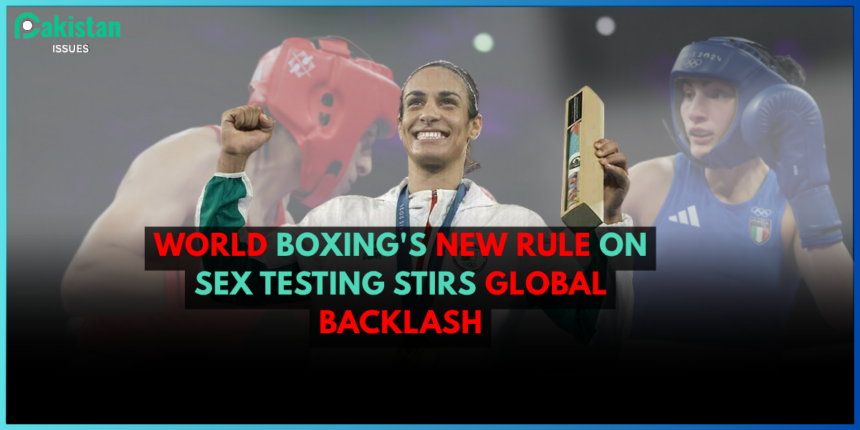A decision by World Boxing to enforce mandatory sex testing has sent ripples through the global sporting community. Under this new policy, all female boxers will be required to undergo chromosomal testing to verify they do not carry the Y chromosome. If they do, they won’t be allowed to compete in women’s categories.
The policy, introduced quietly but now widely reported, is already under fire. Athletes, rights groups, and sports officials are questioning the ethics, fairness, and scientific basis behind it.
According to insiders, the change stems from controversies during the 2024 Olympics. Two boxers — Algeria’s Imane Khelif and Taiwan’s Lin Yu-Ting — were caught in the spotlight after reports emerged that they had tested positive for the Y chromosome, even though they had competed in the women’s events and won medals. The reaction sparked debate over whether their participation gave them an unfair edge.
Now, World Boxing, which oversees amateur boxing after the fall of the IBA, has taken a firm stance. The organization says it’s trying to avoid similar confusion in future tournaments, especially with qualification events for Paris still under review.
One official said, off the record, that the change was meant to ensure clarity. “This isn’t about targeting anyone, but about setting a clear rule. Boxing is a high-contact sport. Fairness has to come first.”
But the backlash was swift.
Several human rights organizations have called the decision discriminatory and outdated. They argue it reduces athletes to their genetic material, ignoring broader questions of biology, identity, and fairness. Others say the policy could end careers and invite legal battles.
Neither Khelif nor Lin Yu-Ting has responded to the news yet, though both have faced scrutiny in the past year. Khelif was barred from competing at the Women’s World Championships in 2023 under unclear circumstances. Lin, who has consistently followed the rules of competition, remains silent for now.
Critics also point to the issue of privacy. Forcing athletes to undergo genetic testing, they say, crosses a line. It’s not just about fairness—it’s about how far sport can go in policing identity.
World Boxing insists that its new rule is about restoring trust and preparing the sport for future Olympic events. Over 100 federations now recognize World Boxing as the governing body after it replaced the scandal-hit IBA.
But with lawsuits likely and public opinion split, the rule may not hold without challenge. Questions linger. How will this affect athletes with DSDs? Will the rule evolve? And what message does it send to young athletes trying to find their place in the sport?
For now, one thing’s clear: World Boxing has thrown down the gauntlet—and the world is reacting.










